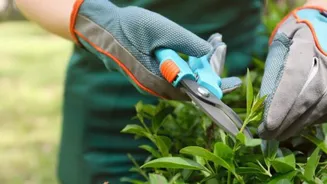Identifying the Culprits
The first step to eliminating unwanted smells is identifying their origin. These odors can originate from diverse sources, including mold, mildew, and
a variety of other factors. Mold and mildew, often found in damp environments, contribute a musty smell, especially common in bathrooms, basements, or areas with leaks. Pets can also be a significant contributor, with their messes, bedding, and dander creating distinct smells. Another source of smells is the kitchen, where food spills, improperly stored items, and trash cans are often sources of unwanted smells. Besides these major factors, other common sources include dirty air conditioning units, overflowing garbage bins, dirty laundry, and even lingering smells from cooking. To effectively tackle this issue, inspect areas where moisture accumulates, such as bathrooms, kitchens, and around windows, as well as areas where pets spend time. Identifying the source is essential before any further actions.
Tackling Mold & Mildew
Mold and mildew thrive in moist conditions, making them a primary source of unpleasant odors in many homes. They not only trigger smells but also cause health concerns, emphasizing the need for immediate removal. Start by thoroughly inspecting areas prone to moisture, such as bathrooms, basements, and areas around windows. If you identify mold or mildew growth, proper cleaning and removal steps should be taken. For minor issues, you can clean the affected area with a mixture of water and bleach or a specialized mold and mildew cleaner. Ensure proper ventilation during cleaning to prevent inhalation of harmful spores. For more severe infestations, it's recommended to seek professional help to ensure complete removal and prevent recurrence. After removing mold or mildew, take measures to prevent its return. This involves fixing any leaks, improving ventilation in damp areas, and controlling humidity levels in the home.
Managing Pet Odors
Pets are wonderful companions, but they can sometimes contribute to unpleasant household odors. Pet odors arise from various sources, including accidents, pet bedding, and dander. Regularly clean up any pet messes immediately to prevent odors from spreading. Vacuuming carpets and upholstery frequently removes pet hair, dander, and any other residual odors. Wash pet bedding at least once a week in hot water to eliminate smells and kill bacteria. Consider using an enzymatic cleaner on areas where pets tend to have accidents, as these cleaners break down odor-causing proteins and leave the area clean. Proper pet hygiene is also important. This means bathing pets regularly, grooming them frequently, and keeping their litter boxes clean. Additionally, ensure that pet food and water bowls are cleaned frequently. Addressing these practices helps keep your home smelling fresh and inviting.
Kitchen Smell Solutions
The kitchen, often the heart of the home, can also be a significant source of unpleasant odors. Food spills, improperly stored food, and overflowing garbage cans frequently lead to lingering, unwanted smells. Regularly clean up spills immediately to prevent food particles from decaying and producing foul odors. Always store food properly, using airtight containers to prevent odors from escaping and contaminating other items. Ensure that your refrigerator is cleaned frequently, including checking for any spoiled food. Regularly replace your garbage bags and clean the trash can thoroughly with soap and water. Consider using a baking soda box inside the refrigerator and freezer to absorb unwanted smells. For lingering odors from cooking, ensure adequate ventilation during and after cooking. Open windows or use the kitchen exhaust fan to remove odors. By addressing these common kitchen problems, you can keep your kitchen smelling fresh and clean.
Air Quality & Ventilation
Proper air quality and ventilation are crucial for maintaining a fresh-smelling home. Stale air, poor ventilation, and dirty air conditioning systems can all contribute to unwelcome odors. Ensure good ventilation by opening windows regularly, especially during and after cooking or cleaning. Use exhaust fans in bathrooms and kitchens to remove moisture and odors. Regularly clean or replace air conditioning filters to prevent dust, mold, and other allergens from circulating throughout your home. Consider using an air purifier to improve air quality, capturing odors and pollutants. Regularly inspect and clean air vents to prevent dust and debris build-up, which may affect airflow and odor. By adopting these strategies, you can improve the air quality in your home and eliminate stale smells. Prioritizing ventilation and air quality is one of the essential factors in keeping your house smelling fresh.
Natural Odor Eliminators
While there are many commercial air fresheners and deodorizers, natural alternatives can be both effective and safe for your home. Baking soda is a powerful odor absorber. Place open boxes of baking soda in areas where odors tend to linger, such as the refrigerator, closets, and near pet areas. Vinegar is another effective natural deodorizer. It can be used to clean surfaces and absorb odors. Place bowls of vinegar in rooms with strong smells, and the vinegar will absorb the odors over time. Essential oils can also be used to freshen the air and create a pleasant atmosphere. Diffuse essential oils like lavender, lemon, or peppermint to neutralize odors. When you need to eliminate odors in carpets, sprinkling baking soda on carpets and letting it sit for a few hours before vacuuming can neutralize unpleasant smells. These natural solutions are environmentally friendly, budget-friendly, and safe to use around children and pets.
Regular Cleaning Routine
Establishing a consistent cleaning routine is critical to preventing bad smells from taking root in your home. Regular cleaning helps remove dirt, grime, and other sources of odor before they become an issue. Develop a cleaning schedule that includes tasks like vacuuming and sweeping floors weekly, cleaning bathrooms and kitchens regularly, and dusting surfaces. Regularly wash your bedding and curtains to remove accumulated dust and odors. Clean appliances, such as your refrigerator, microwave, and oven, to prevent food spills and bacteria buildup. Empty trash cans and replace liners regularly. This includes disposing of garbage promptly and cleaning the bins. Consider wiping down surfaces with cleaning solutions that effectively eliminate bad smells. A well-established cleaning routine will prevent odors from becoming persistent problems, resulting in a fresh-smelling home.
Professional Help When Needed
While many odor problems can be solved with DIY methods, some situations may need professional intervention. Persistent and severe mold or mildew growth may need professional mold removal. If you have a major leak, you need the help of a professional plumber. Persistent or unusual odors could be indicative of hidden problems, like a plumbing issue or a gas leak. If you suspect a gas leak, immediately evacuate the house and contact the authorities. When you are unable to identify the source of the odor or the smell persists despite your best efforts, you need to seek the help of a professional. Professionals can identify and address complex odor issues, restoring a fresh and healthy environment for your home. They also have specialized equipment and expertise to identify and eliminate the root cause of odors, guaranteeing a long-lasting solution.
















